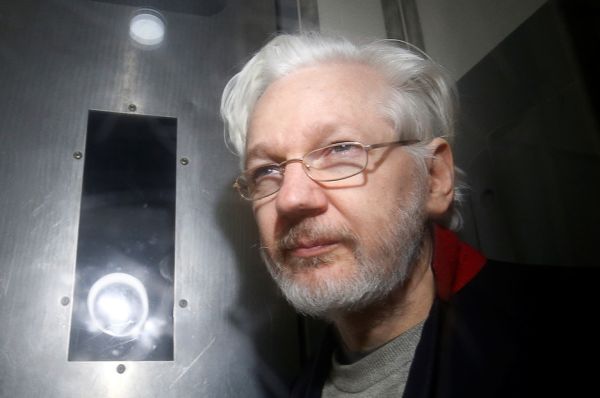
The U.S. government plotted to kidnap or kill Julian Assange while he was holed up at the Ecuadorian embassy in London, a UK court was told during the WikiLeaks publisher’s extradition hearing.
Assange’s lawyer Edward Fitzgerald told Judge Vanessa Baraitser that Washington wanted to make the WikiLeaks founder’s death look like an accident and that U.S. intelligence agencies worked with Spanish company UC Global to extensively spy on Assange inside the embassy.
Fitzgerald claimed that recordings were collected every 14 days and handed over to U.S. intelligence services. The surveillance even included footage of Assange meeting with his legal team, breaching attorney-client privilege, he said.
“There were conversations about whether there should be more extreme measures contemplated, such as kidnapping or poisoning Assange in the embassy,” Fitzgerald told the court. Assange’s lawyers have long-warned that kidnapping or extraordinary rendition could be on the table for Washington if the U.S. could not get to him any other way.
In a 2019 presentation on the technical aspects of the surveillance operation, German hacker Andy Muller-Maguhn, who had visited Assange inside the embassy, claimed that kidnapping and poisoning were options for the U.S. government and that all doors and windows in the embassy were documented so various options could be explored.
The surveillance was so intense that bugs were even implanted in a fire extinguisher and in a bathroom that Assange used, he said.
Last October, during a hearing to request a delay to February’s extradition, Assange’s legal team also argued that the U.S. had tried to “kidnap and harm” the journalist. Mark Summers QC also brought up the fact that the U.S. had been “intruding” on conversations between him and his lawyers, but Judge Baraitser denied the request for more time.
The threat of death has likely not been far from Assange’s mind since he launched WikiLeaks back in 2006. Last year, his father John Shipton revealed that he warned his son that he could be killed for his work. “You want to be careful because they might shoot you, or push you off a bridge,” Shipton recalls telling him.
Assange was dragged from London’s Ecuadorian embassy in April 2019 and has been kept at the maximum-security Belmarsh Prison since. He had spent seven years inside the embassy, fearing extradition to the U.S., after skipping bail in relation to a Swedish sexual assault case which his lawyers say was politically motivated and was later dropped.
 Escambray ENGLISH EDITION
Escambray ENGLISH EDITION





Escambray reserves the right to publish comments.